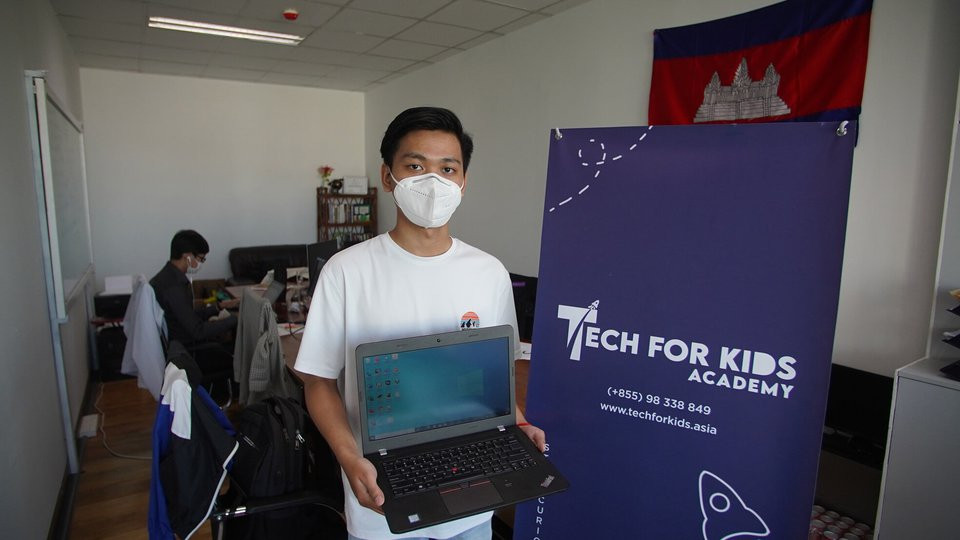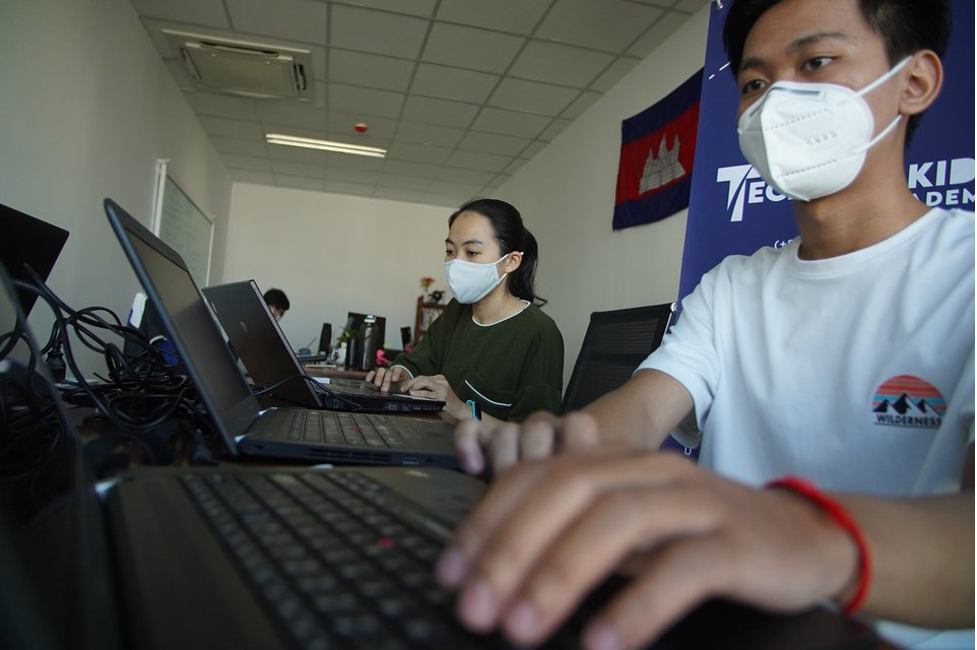
A pioneering project aims to stamp out educational inequality by providing laptops to poor students as Cambodia embraces the Industry 4.0 digital revolution.

An innovative campaign aims to raise education across Cambodia by dishing out used computers to underprivileged pupils.
The Covid-19 pandemic shuttered classrooms nationwide for most of 2021, causing students to shift to online learning. However, families unable to afford the devices to learn from have been hit hard, with many students pushed out of education.
A group of university students and graduates from different fields has come up with an innovative campaign, “Computer of Change”. The aim is to help distribute computers to students who are unable to afford one for their studies.
Steven Sok, lead of the engineering team of the campaign and a team member of Tech for Kids Academy, said the aim of this campaign is to secure equal digital education for all students nationwide.
“We want all students to equally receive the same education just like other students. For example, some students in the countryside do not get access to the same education, especially studying during the Covid-19 pandemic. They do not have enough devices and tools to access online classes,” said the 19-year-old civil engineering student.
According to a report in March by the UNICEF, only 12% of responding students had a computer or tablet at home.
Steven added initially the aim was for Tech For Kids Academy to provide coding lessons to a school. However, they discovered almost all of the students do not own laptops.
“That was how we started the idea to collect and distribute computers to those who cannot afford to buy them,” he added.
In June, the Computers of Change campaign kick-started under the slogan, ‘Old to you, new to me’. With support from the Ministry of Education, Youth, and Sports and other partners, the aim is to collect a minimum of 150 second hand computers to distribute in classrooms.
To date, they have received 79 computers, which includes 60 laptops and 19 desktops. Once 150 are collected, they will be handed out in Phnom Penh, Battambang, Kampong Cham, Preah Vihear and Pursat.
The Ministry of Education will select 50 percent of students to receive a computer. Steven and his team will decide the remainder. It is hoped distribution will start in January.
“First of all, we clean the exterior and then do factory reset. We then continue with installing the operating system and some learning resources and contents that we have collected and some we got from the Ministry of Education and other organizations,” said Steven.
Schools across Cambodia first closed their doors in March, 2020 prior as an initial response to the pandemic. Although some schools have now opened the doors for in-person learning, online class and research at home are still needed for their studies to succeed.
Heng Sopheaktra, a junior student majoring in nursing at Health Sciences of R.C.A.F, said currently she does not have a personal computer. However, she added her major is lectures based on memories and practice rather than research.
“It is really difficult during online class, because the phone screen is small. If using a laptop, it has a big screen and clear vision that is convenient for studying. If I have a laptop, I think my studies would be more effective,” she said, adding the price of laptops is the main issue.
Koun Makara sits studying, his hand zooming into the phone screen. The grade 12 Bak Touk High School student said he only has his smartphone for online studies.
“For me, if I have my own laptop, I think it would help me a lot with my studies. I can use it for Zoom and to do research. There is some difficulty in using the phone for an online class,” he said.
Some of his friends learn through laptops and he sees there are many benefits compared to a phone.
Chhay Dany, majoring in Chemistry and a student-teacher at the National Institute of Education, said she used to have a laptop, but now it has broken.
“Having a laptop is easier for me to do school tasks and other tasks besides the school. Without a laptop, it is really difficult for me. As we know technology is improving day by day, so some kinds of assignments or research require internet exploration and searching,” she added.
The most common reasons students do not have access to a laptop is due to poverty levels and cost.
For more interesting topics, vist their website: kiripost